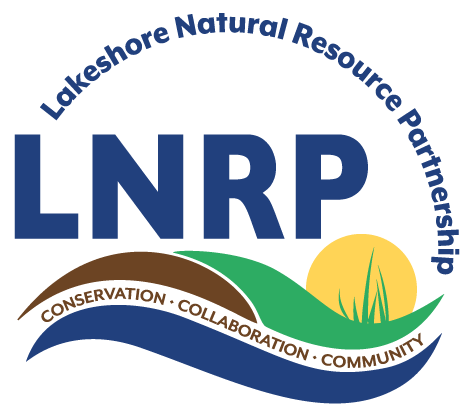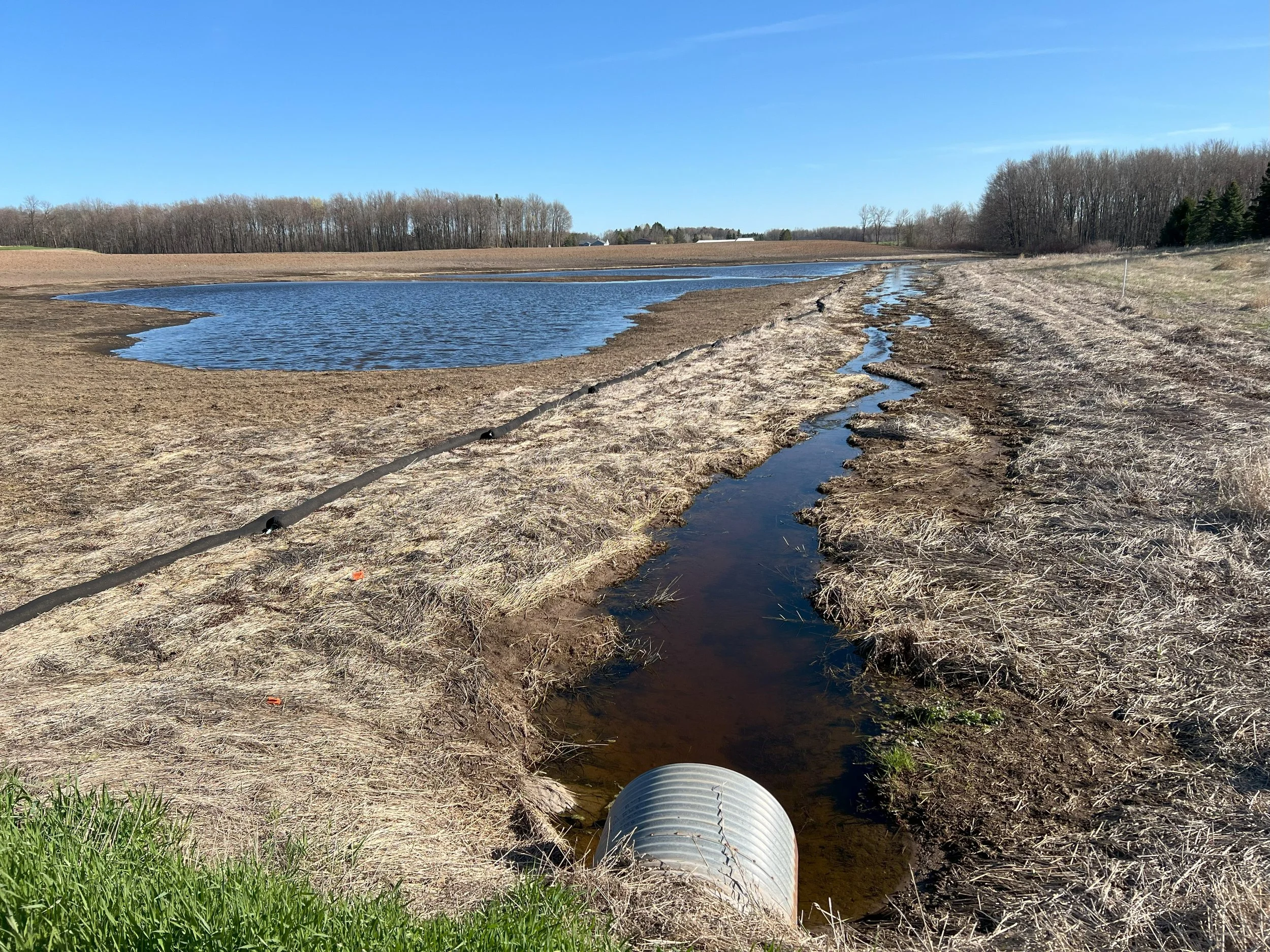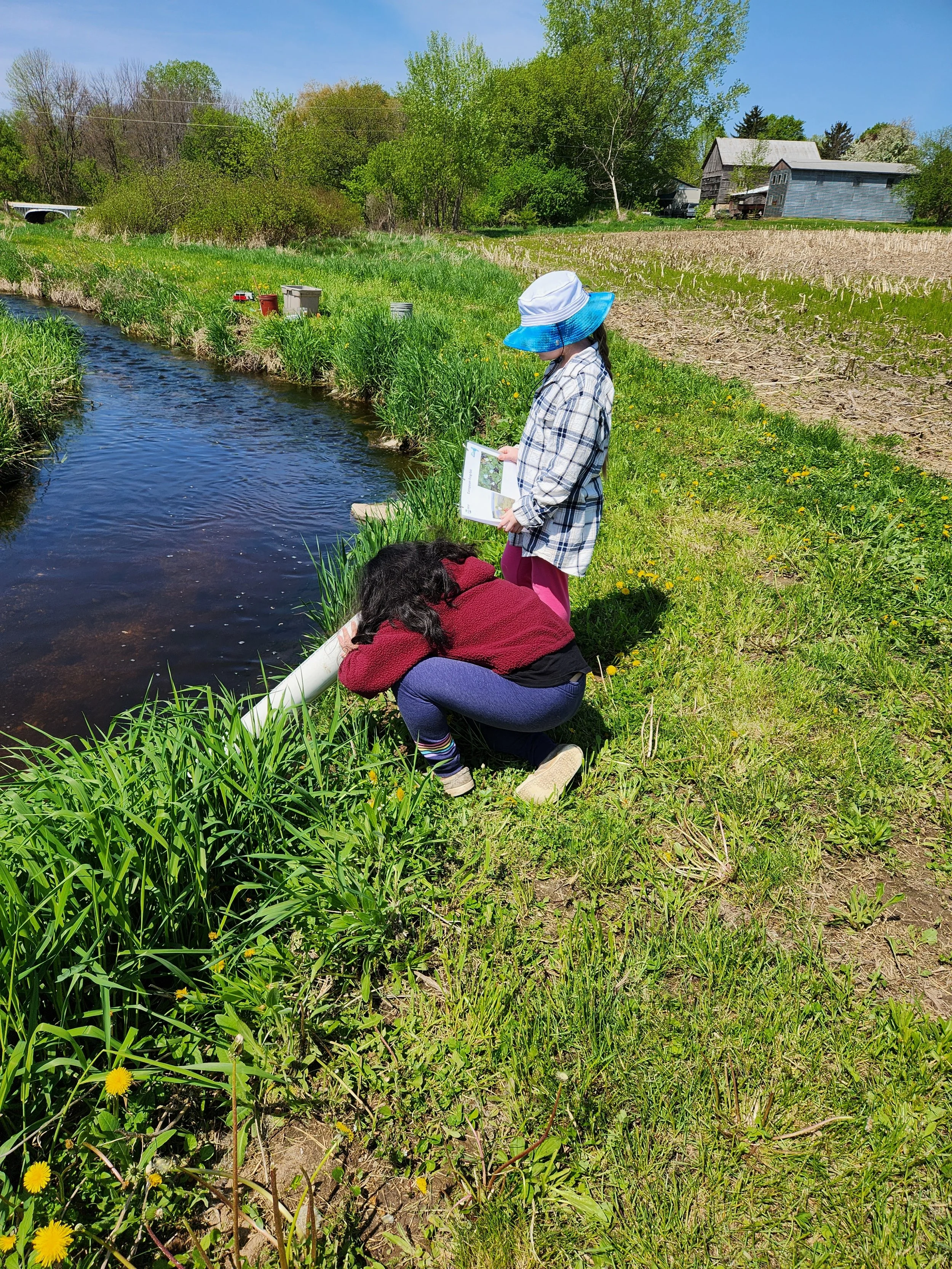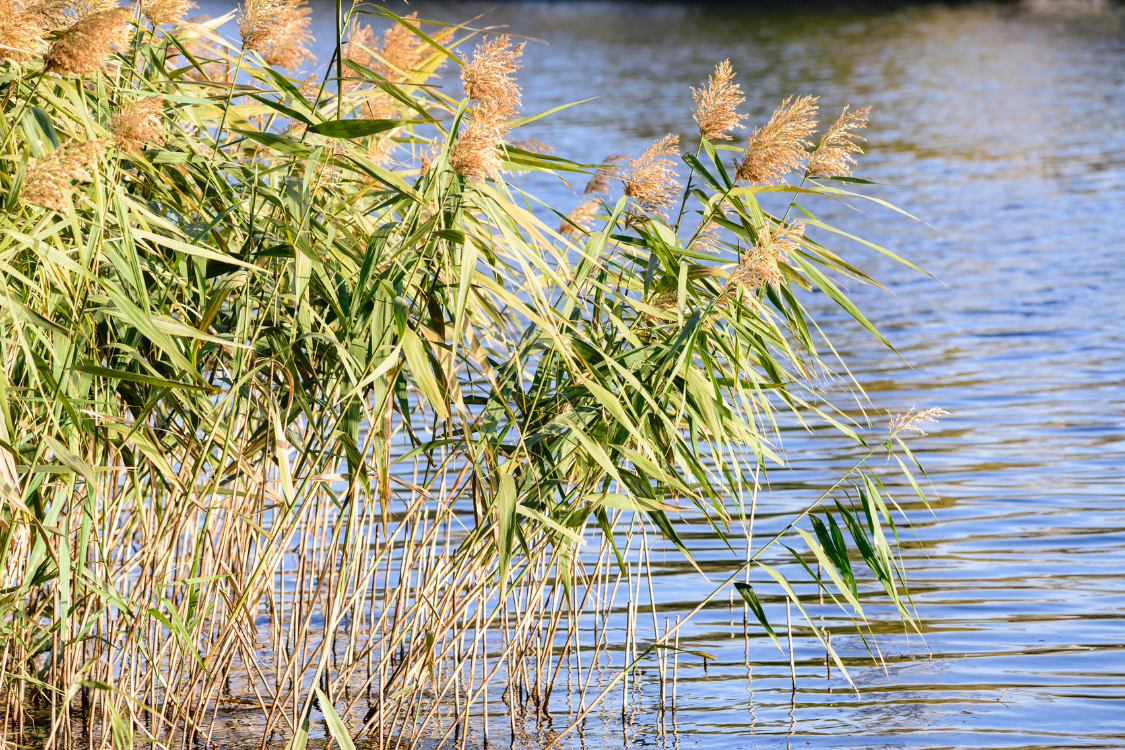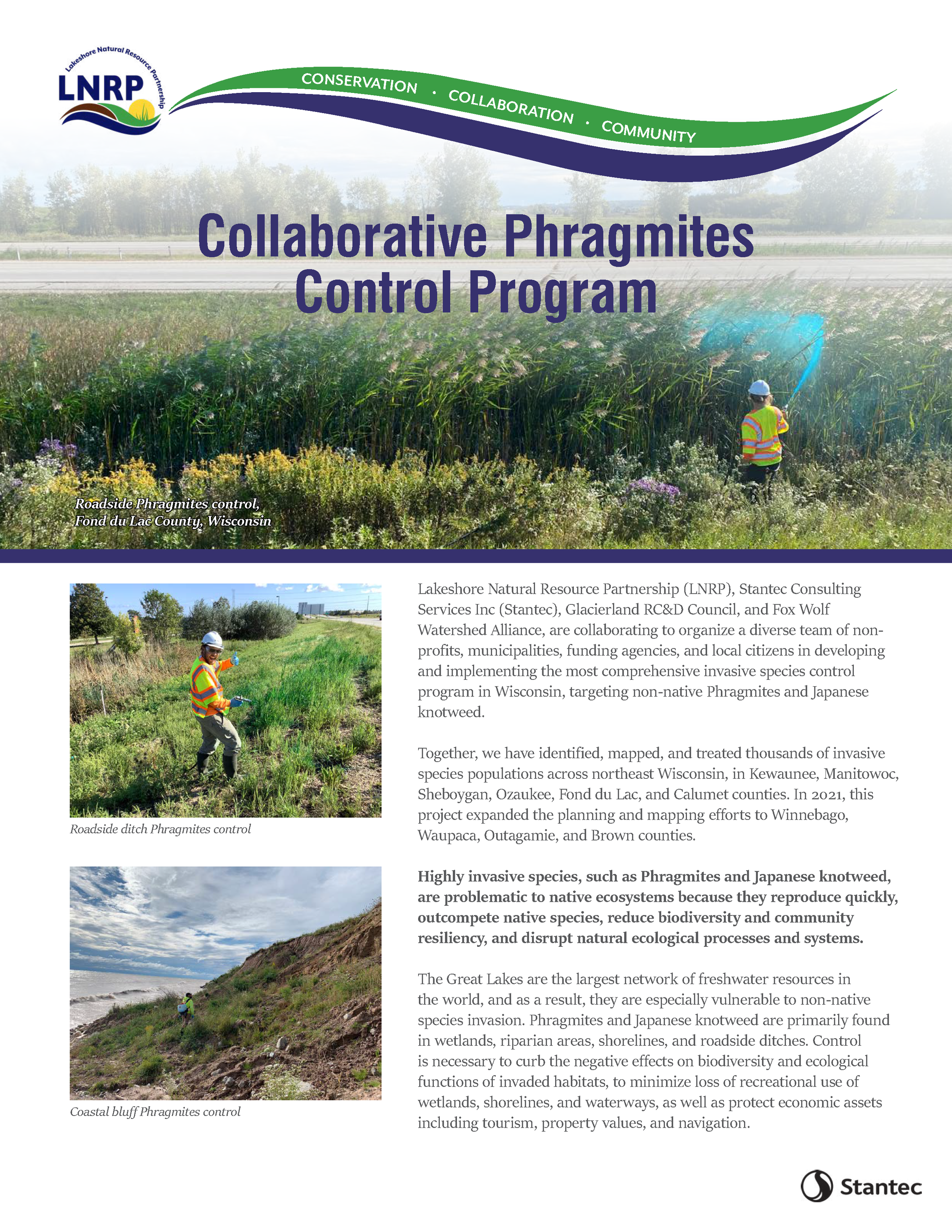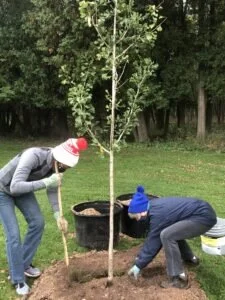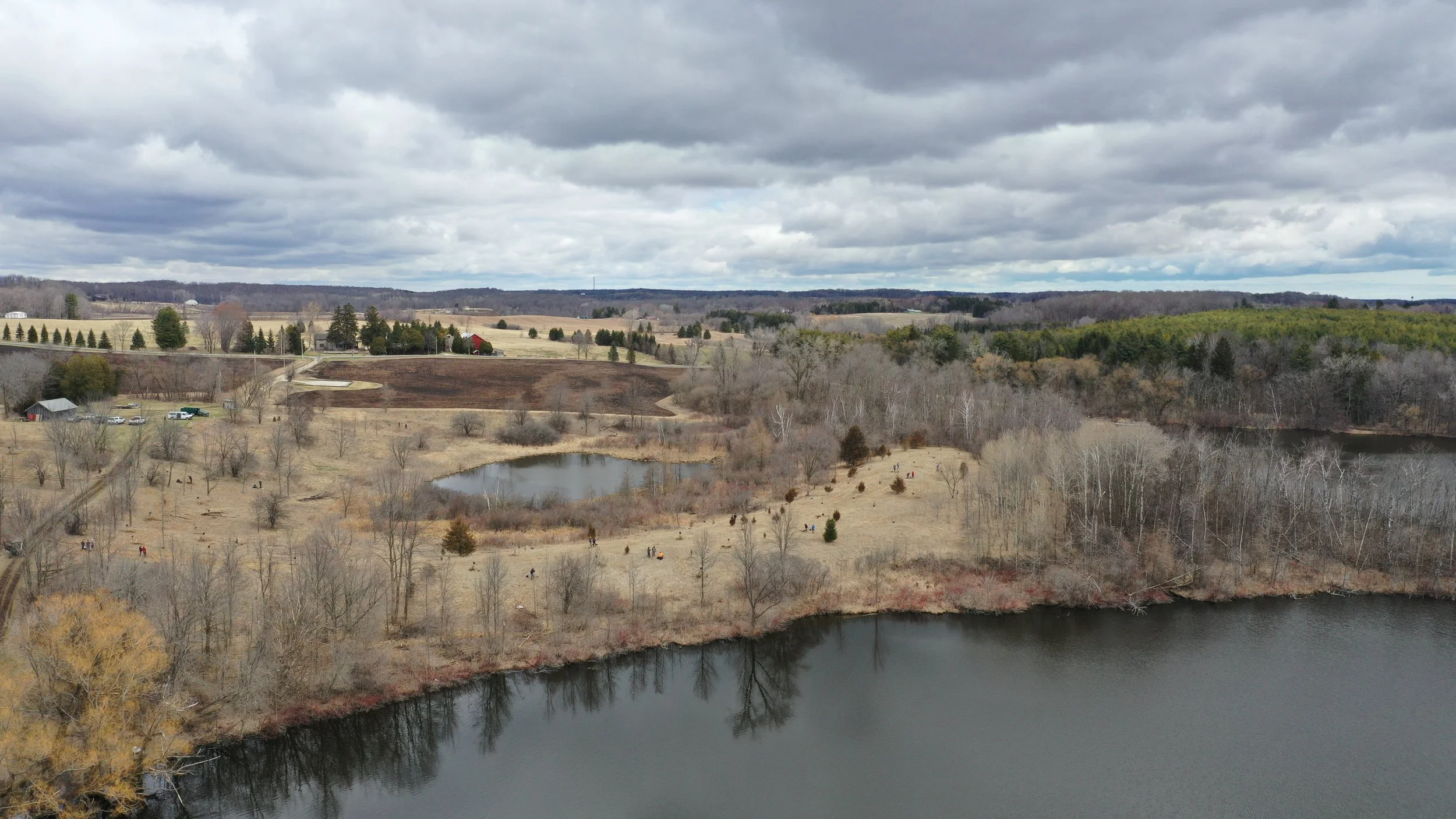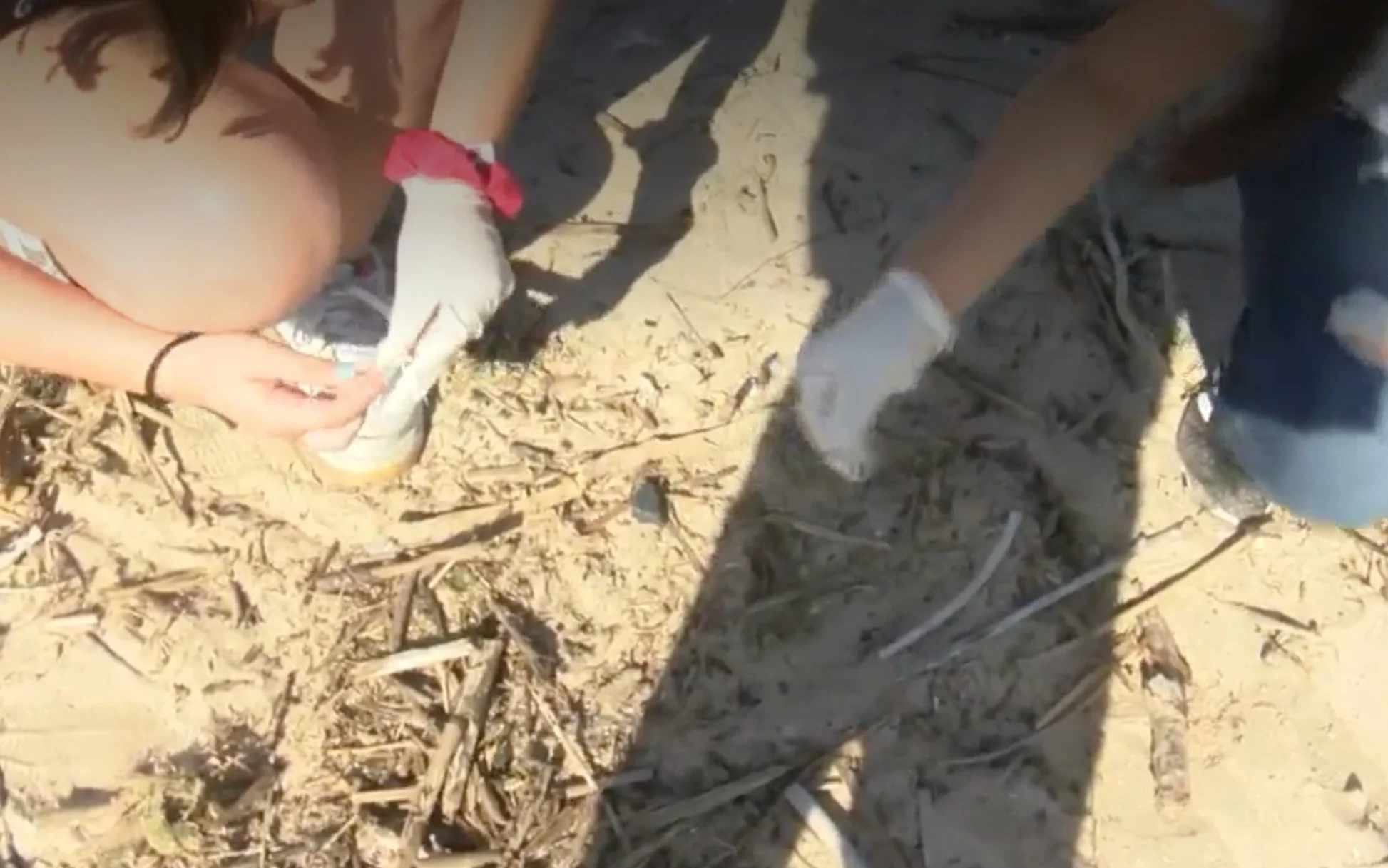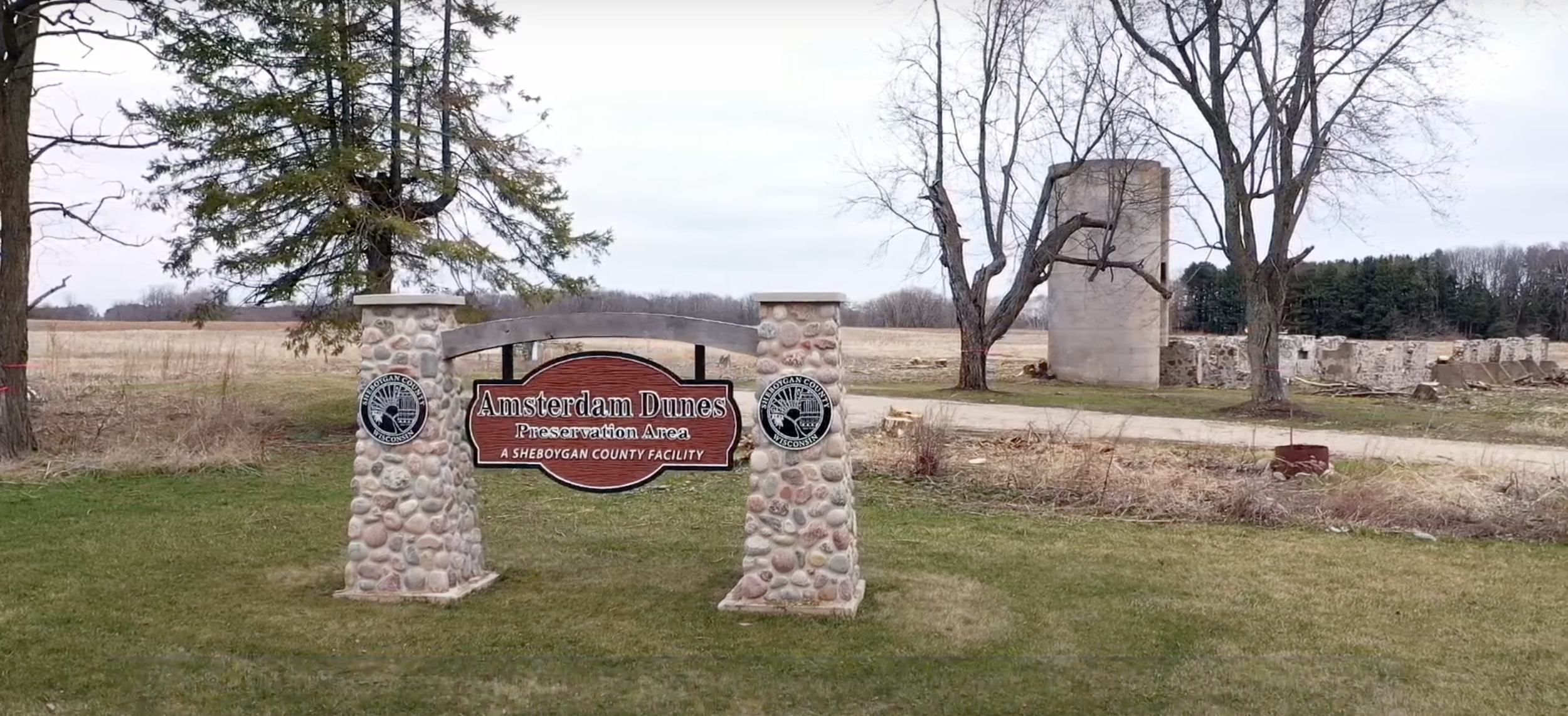Lakeshore Natural Resource Partnership (LNRP) has teamed up with Dr. Ryan Newton and his undergraduate capstone students at UW-Milwaukee’s School of Freshwater Science (SFS) to support the ongoing restoration of the Valley Creek Corridor in Port Washington. Throughout 2024, Dr. Newton’s students have acted as a small consulting team, tasked with gathering and analyzing stream data to inform both the restoration process and future research opportunities.
Read MoreLNRP secured a DNR Lake Management Planning grant to provide the necessary framework for water quality improvement projects in Carstens Lake. Improvements to land use practices to reduce phosphorus and other nonpoint source pollutant inputs are underway; however, additional work was needed to improve Carstens Lake water quality. The subsequent 2018 Carstens Lake Comprehensive Management Plan recommended several structures adjacent to Pine Creek for water quality treatment to mitigate phosphorus loading in Carstens Lake.
Read MoreThe City of Port Washington is embarking on an exciting watershed-scale initiative to revitalize Valley Creek, a crucial tributary flowing into Lake Michigan. This project aims to tackle the challenges facing Valley Creek using innovative, nature-based solutions. The goal is to not only stabilize the stream’s condition, but also strengthen the surrounding ecosystem and community by building climate resilience and improving public access.
Read MoreThe City of Port Washington received a grant from the National Fish and Wildlife Foundation (NFWF) to start designing restoration plans for the Valley Creek Corridor. The Valley Creek Corridor has been experiencing excessive bank erosion which damages infrastructure, degrades native fish habitat, and poses health and safety risks. LNRP has been working with the City of Port Washington to secure funding for this project, and has been subcontracted with these funds to implement education and outreach programs. Ultimately this project has the potential to improve water quality and habitat, significantly reduce the risk of flooding, and increase safety and accessibility of this valuable public green space.
Read MoreThis year, LNRP received a grant from the West Foundation, which funds work in the Manitowoc River Basin. With this generous support, LNRP will be able to increase investment in ongoing initiatives in this region, expand support through our partner groups, and leverage additional funds for project grants. These funds help make possible projects ranging from small-scale, educational initiatives like Trout in the Classroom to large-scale, multi-stakeholder projects like the Coastal Resiliency Community Impact Project (CRCIP). LNRP thanks the West Foundation for their support of our work, and their contribution to the health and vitality of the Manitowoc River Basin.
Read MoreInvasive species can cause widespread damage to ecosystems, reducing overall health, biodiversity, and climate resilience. That’s why a collaborative team called the Lakeshore Invasive Species Management Area (LISMA) has been working on invasive Phragmites control efforts for over 10 years throughout northeast Wisconsin. Lakeshore Natural Resource Partnership (LNRP), Glacierland Resource Conservation & Development Council (RC&D), Fox Wolf Watershed Alliance, and Stantec Consulting Services Inc. are championing LISMA to protect and enhance the resiliency of the Great Lakes region through an innovative, grassroots approach.
Read MoreExtreme precipitation events, coastal storms, and fluctuating water levels pose threats to Lake Michigan coastal communities. Flooding, erosion, and storm surge can threaten properties and impair infrastructure and other assets that are vital to the region’s economic security. Agricultural and urban runoff during heavy rain events can also impair water quality in receiving water bodies, further threatening recreation and tourism. Planning, preparing for and adapting to these and other climate change hazards can enhance community resilience and strengthen coastal economies.
Read MoreLNRP and Stantec Consulting Services have created project summaries showcasing collaborative initiatives in the Lakeshore Basin. The summaries cover projects funded by the US Forest Service and the Wildlife Conservation Society's Climate Adaptation Fund, a regional Collaborative Phragmites Control Program, and the Amsterdam Dunes Preservation Area Habitat Restoration project. These projects aim to enhance coastal ecosystems, control invasive species, and protect critical habitats for migratory birds in the Lakeshore Basin.
Project summaries were developed to showcase several collaborative projects in the Lakeshore Basin.
With generous support from the Fund for Lake Michigan, Friends of Stony Brook (FOSB) and the Lakeshore Natural Resource Partnership (LNRP) recently completed phase three of the effort to restore Stony Brook. The effort was in collaboration with the Town of Stockbridge which cost-shared and installed a “fish-friendly” culvert on Long Road…
Read MorePhase Three project sites include the Cities of Algoma and Kewaunee, two City Parks in Manitowoc – Silver Creek Park and Lower Schuette Park, the Village of St. Nazianz, the Town of Two Creeks; and two Manitowoc County Parks – Maribel Caves and Lower Cato Falls…
Read MoreIn response to the challenge of climate change, LNRP launched the Coastal Resiliency Community Impact Project (CRCIP) in late 2020 and spent 2021 engaging Lake Michigan’s coastal communities. We believe this Coastal Resiliency opportunity will prove valuable resources to our municipal partners working to identify, plan, fund, and execute relevant community projects.
Read MoreLake Michigan coastal and riparian communities have been significantly impacted by land-use changes; therefore, restoring these unique ecosystems and reducing impacts from land conversion, erosion, pollution, and fragmentation are critical. Forests along the Lake Michigan coastline absorb severe impacts from a changing climate, including intense challenges to birds and wildlife and changes in weather patterns. LNRP will address climate impacts such as warmer, longer growing seasons, milder winters, increased frequency of heavy precipitation, higher fire risk, and the amplification of forest health stressors such as pests and invasive species.
Read MoreManagement techniques such as prescribed fire, removal and control of invasive species, and planting native trees, shrubs, and herbs are needed to maintain and enhance ecological health. The establishment of diverse native vegetation and year-round cover on this Property will result in increased foraging and nesting habitat for native wildlife species.
Read MoreOn Saturday, September 18th and Sunday, September 19th almost 75 volunteers descended on five separate City of Manitowoc beaches for one of our many annual Beach Clean-ups. These hands-on activities (literally) allow members of the general public to take part in an important seasonal ritual…
Read MoreLike many navigable rivers in our region, the Sheboygan River has seen a lot of changes over the decades. One of the more noticeable and positive changes, along with gradual improvements to water quality and riparian habitats, has to do with more and more canoers, kayakers, and paddlers now using the river as a source of recreation, inspiration, and exercise…
Read MoreThe Amsterdam Dunes Preservation Area is a 328-acre property owned by Sheboygan County, adjacent to the western shore of Lake Michigan and the Cedar Grove Ornithological Research Station and State Natural Area. Together, these conservation properties form a significant undeveloped, protected natural area that has been identified by WDNR and Sheboygan County as a priority area for conservation…
Read MoreOne long-term project that was initiated in 2008 focused on a partnership with the Village of Cleveland and repairing the abandoned millpond created by the removal of the dam that powered the grist mill in 1996.
The first phase of the Centerville Creek Restoration Project was completed through the development of several key partnerships…
Read More